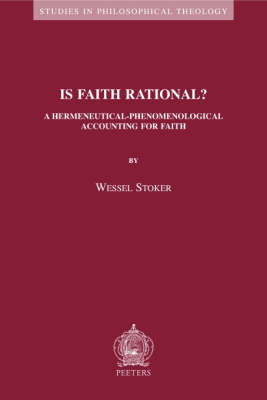Is faith rational? Some respond by providing proofs for God's existence. Others hold that no reasons for the Christian faith can be given. This book discusses different ways of accounting for faith, i.e. classical apologetics, the transcendental view that faith is part of human nature, and the view that argues for the rationality of faith on the basis of direct perceptions of God that appear to be objective. The author subsequently proposes a rational accounting for the Christian faith in our secularized and religiously pluralistic society. His starting point is the lasting religious experience of believers in everyday life. He also discusses the question of how this accounting for faith can function in a world of both secular worldviews and other religions. Religious experience is not subjective or arbitrary but rational. In these experiences human beings are involved with God. Religious experience can be described phenomenologically as an experience that transcends our capacities. God reveals himself to people primarily in narratives. Narratives have a rational structure and the Gospel narratives provide, in narrative form, arguments for faith.
The assent to faith involves the whole person and stamps his life story and conduct. Assent to faith is thus affective, but that does not exclude its being rational. The positive reason for faith lies in experience itself. There are no reasons for faith outside the faith itself, but this does not mean that there are no points of contact in human existence for the Christian faith.
- ISBN10 9042917881
- ISBN13 9789042917880
- Publish Date 19 October 2006
- Publish Status Active
- Publish Country BE
- Imprint Peeters Publishers
- Format Paperback
- Pages 267
- Language English
